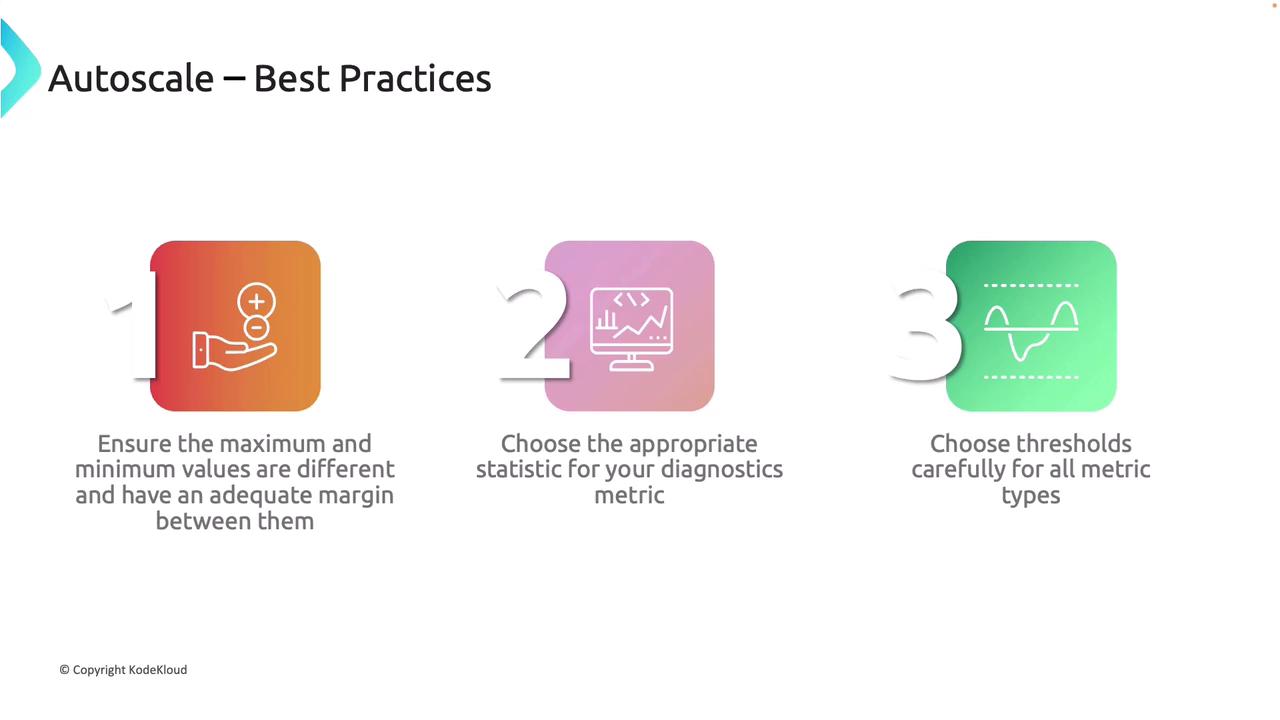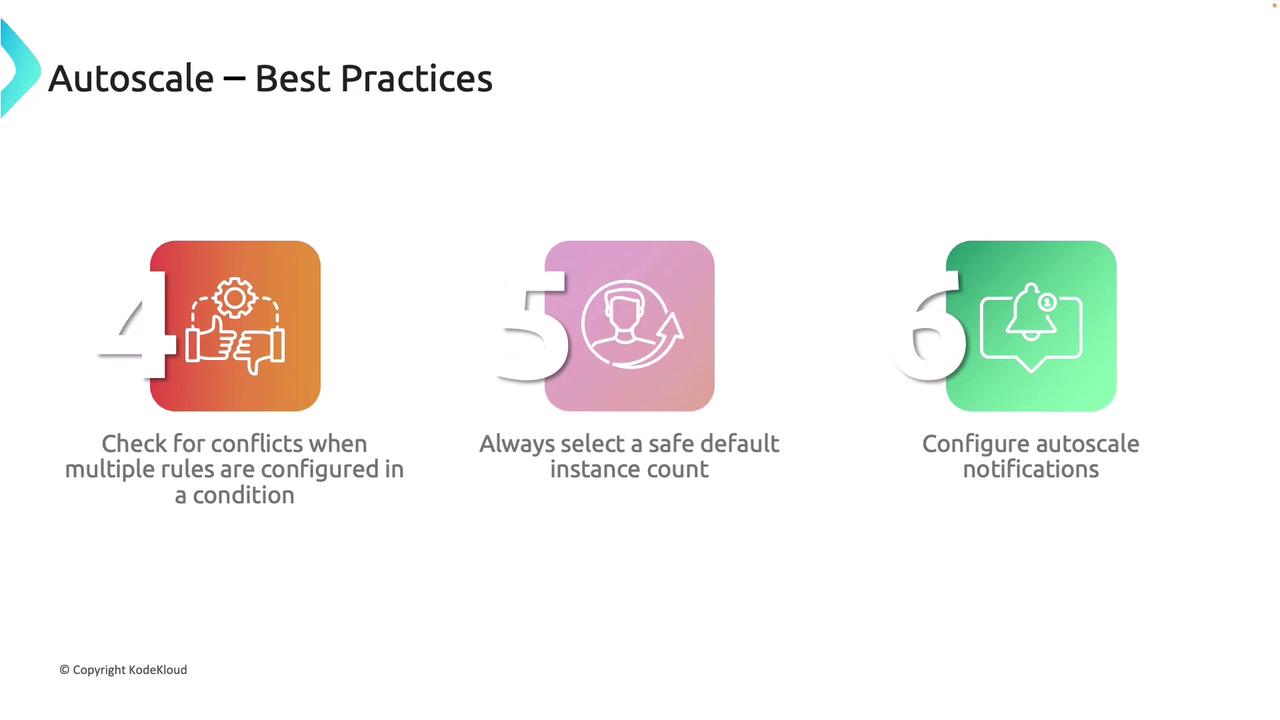AZ-204: Developing Solutions for Microsoft Azure
Scaling Apps in Azure App Service
Autoscale Best Practices
This article provides essential guidelines for implementing auto-scaling in Azure App Service. By following these best practices, you can optimize performance and resource management, ensuring your application scales efficiently.
Setting Maximum and Minimum Values
Begin by configuring distinct maximum and minimum instance counts for your auto-scaling rules. Establishing a sufficient margin between these values is critical to prevent rapid scaling, which may cause excessive resource consumption and impact performance.
Choosing the Right Metrics
Select the most relevant metrics for monitoring your application's health—be it CPU usage, memory consumption, or request rate. Using the appropriate metric ensures that scaling actions occur at optimal times, balancing performance needs with resource efficiency.
Calibrating Scaling Thresholds
Setting precise thresholds for auto-scaling rules is vital. Too-low thresholds can prompt premature scaling, while overly high thresholds may degrade performance. Accurate calibration helps maintain the right balance between resource utilization and application responsiveness.

Managing Multiple Rules
When multiple auto-scaling rules apply to a single condition, verify that there are no conflicts between them. Conflicting rules can result in erratic scaling behavior, adversely affecting application performance. Ensure that every rule contributes harmoniously to the overall scaling strategy.
Establishing a Safe Default Instance Count
Define a safe default instance count that will run regardless of scaling conditions. This baseline should be based on your typical workload to keep your application available and responsive even before any scaling actions are triggered.
Configuring Autoscale Notifications
Set up autoscale notifications to receive real-time updates on scaling activities. These notifications are crucial for identifying and resolving any issues promptly, ensuring that your scaling strategy remains effective over time.

Note
For more detailed insights on Azure scaling and performance tuning, explore additional Azure Documentation resources.
This overview of auto-scaling best practices provides a robust foundation for efficient resource management in Azure App Service. In the next module, we will explore deployment slots for streamlined deployments. Stay tuned for further insights.
Watch Video
Watch video content